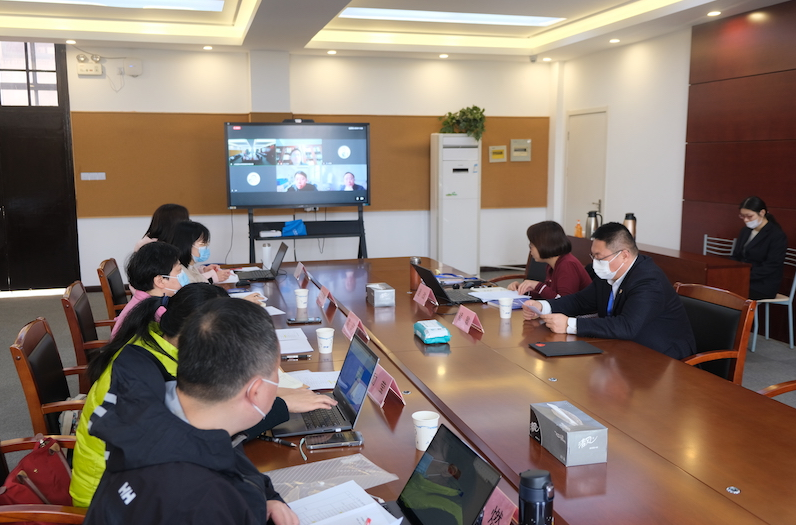

On the morning of March 11, the seventh seminar of “2021 Development Report on Cities in Yangtze River Delta” was held at Yangpu Campus. Hu Jian, Director of the Soft Power Center of the Shanghai Academy of Social Sciences, Wang Dan, Director of the Comprehensive Office of the Development Research Center of Shanghai Municipal People’s Government, Deng Zhituan, Deputy Director of the Think Tank Construction Office of the Shanghai Academy of Social Sciences, Zheng Chongsuo, Deputy Director of the Literature Institute of the Shanghai Academy of Social Sciences, and Liu Xing, deputy director of the Triangle Integration Development Research Center of Shanghai Academy of Development & Reform, attended the meeting online. Party Secretary Chu Min and relevant researchers from the Development Research Center attended the meeting offline. The meeting was presided over by Lu Gai, the acting director of the Development Research Center.
This seminar re-examined and adjusted the indicator system of the blue book “Development Report on Cities in Yangtze River Delta - Research on the Vitality of Small and Medium Cities • Culture Chapter” formed by previous seminars. Lan Xiaomin, a researcher of the Development Research Center, firstly reported to the experts the results of the center’s preliminary discussions on behalf of the center, including the origin of the research on the vitality of small and medium-sized cities in the Yangtze River Delta, the definition of concepts, and the indicator system and framework formed by multiple discussions. Five experts successively put forward their insights on topics such as the logical system of cultural originality, the corresponding relationship between cultural resource endowment and cultural originality, the embodiment of urban cultural signs, the evaluation of urban cultural governance efficiency, and the operability of data collection. In his concluding speech, Chu Min thanked the experts for their full support and suggestions, and asked the research group to clearly define the boundaries of the secondary indicators, visualize the third-level indicators, improve the overall theoretical framework, and put forward productive suggestions for report writing and political advice. The research group will earnestly absorb the results of this seminar and implement and promote the writing of the report.